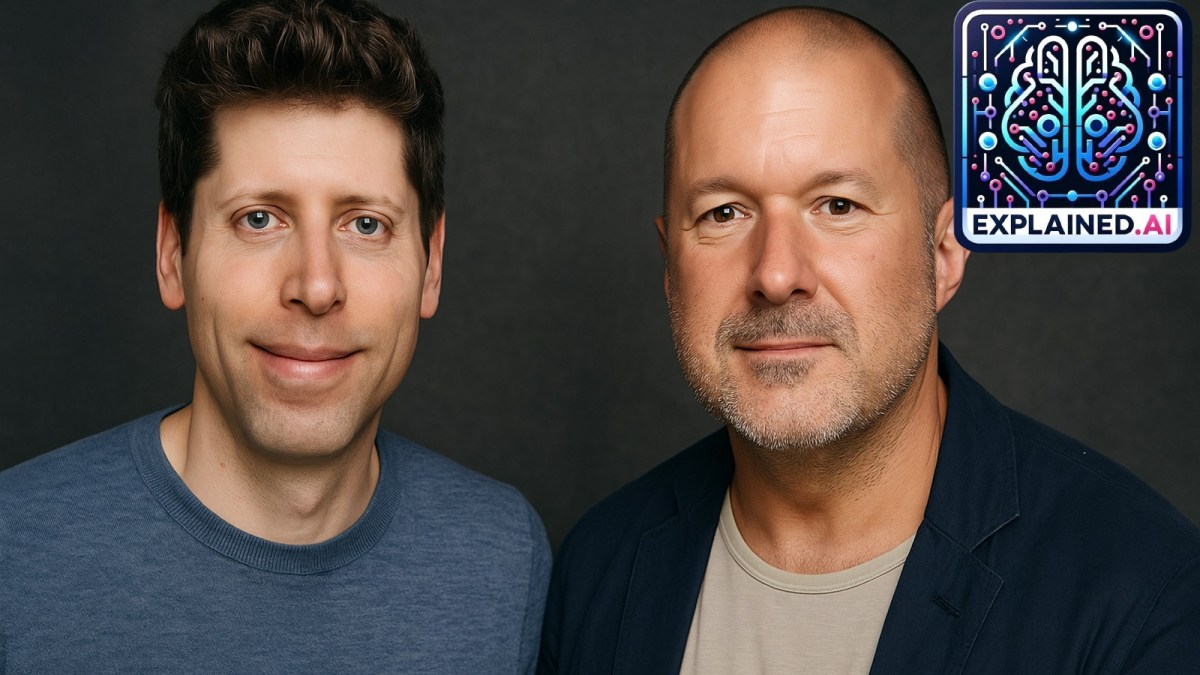Altman, former Apple design head Ive join hands to create new ‘family of devices’: What this means in the age of AI
The tech world has taken note of the Altman-Ive partnership as it grapples with another step in AI development: how the technology integrates into an everyday consumer device, and goes beyond being an app on a phone.

“We have an opportunity here to completely reimagine what it means to use a computer.”
This is how OpenAI CEO Sam Altman started the announcement video on May 21 of his company’s acquisition of startup io, which was founded by Apple’s legendary former designer Jony Ive.
The nearly $ 6.5 billion deal is important for a range of reasons, chief among them Ive’s legacy — he is behind the design of the iPhone, iPod, MacBook, iPad and Apple Watch.
Now, Ive joins hands with Altman to “create a family of devices that would let people use AI to create all sorts of wonderful things”.
We do not yet know what these devices are or will be. But the industry has taken notice of this partnership as it attempts another step in AI development: how the technology integrates into a gadget or everyday consumer device, and goes above and beyond being an app on a phone.
Why is Jony Ive important?
Ive was born in London, and moved to California in 1992 to join Apple. Six years later, as senior vice president of Industrial Design, Ive would design the first iMac. With its minimal, clean and sleek aesthetic, the iMac was a crucial design breakthrough from the boxy versions of the earlier personal computers.
Ive rose to become Chief Design Officer and had a long-time partnership with former Apple CEO Steve Jobs. He designed the Iphone, which was launched in 2007 and changed the smartphone industry.
He left Apple in 2019 and founded a design firm called LoveFrom, which counts among its clients Ferrari and Airbnb. In 2024, Ive launched io to develop AI-powered products.
What is the new deal with Open AI and why is it important?
OpenAI paid $6.5 billion to buy io. It already had a 23% stake in the company.
With this deal, Ive and his team of roughly 55 engineers and researchers will work with OpenAI. LoveFrom will also take up design and creative work across OpenAI and io.
Altman and Ive are hinting at a new tech product, which they want to debut in 2026.
“People have an appetite for something new, which is a reflection on a sort of an unease with where we currently are,” Ive said in the announcement video, showing that the product could be different from the products available in the market currently.
In an internal call at Open AI, whose recording was reviewed by the Wall Street Journal, Altman spoke of the devices they are going to build. He laid out grand plans of shipping 100 million AI “companions” that will be part of daily life.
The WSJ has also reported that the device won’t be a phone, and Ive and Altman want to move people away from screens.
Altman also suggested the acquisition could add $1 trillion in value to OpenAI.
The profit question at Open AI
As per the WSJ, OpenAI has told its investors that it wouldn’t generate a profit until 2029. It is expected to lose $44 billion before doing so.
A new device could potentially help OpenAI reach out to consumers and make money. Apple and Google’s software runs all our smartphones. And we end up accessing ChatGPT — Open AI’s primary offering — through them.
But creating a new AI-powered device is hard and has not seen much success. For example, in 2024, a start-up called Humane (which Altman also invested in) launched an AI pin, pitching it as an alternative to a smartphone. For $700, this tiny computer was marketed as a new way to interact with the world.
The product saw very few takers and Humane was sold to HP earlier this year.
What does it mean for Apple?
Apple is generally considered to be lagging behind in AI development. For example, it has so far not come up with AI features that would radically change how we interact with smartphones.
There is also an overwhelming sense within the whole tech industry of how existing devices will transform due to AI.
Eddy Cue, the senior vice president of services at Apple, told a US court earlier this month during the Google antitrust trial that we may not “need an iPhone 10 years from now”.
“Incumbents have a hard time … We’re not an oil company, we’re not toothpaste — these are things that are going to last forever … You may not need an iPhone 10 years from now.”
Despite this admission from Cue, Apple continues to exercise its dominance in its market and is expected to do so.
Many commentators such as Bloomberg’s Dave Lee argue that it might be easier for Apple to build and step up its AI features and development than for OpenAI to create a AI product that would disrupt the market.